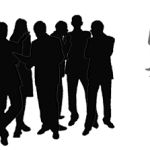Having the Courage To Follow Your Heart
Your time is limited, so don’t waste it living someone else’s life. Don’t be trapped by dogma — which is living with the results of other people’s thinking. Don’t let the noise of others’ opinions drown out your own inner voice. And most important, have the courage to follow your heart and intuition. They somehow already know what you truly want to become. Everything else is secondary.
— Steve Jobs
Stanford Commencement, June 12, 2005
You hear a lot of variants of this: If you do what you love, you’ll never work a day in your life; Don’t settle; Follow your bliss; etc. Thing is, most of the people who say this are very successful in said bliss-following. It’s not unreasonable to think that many who see what Jobs had to say will respond, “But Steve, you’re a billionaire. Of course you’re going to say to follow your heart. You’re the exception that succeeded.”
Often you have to consider the source in these matters. So, here’s a glimpse at your author’s story:
As a kid, I always thought my career would be in one of the sciences. In the early 80s, I found myself as a programmer writing software for satellites and related support systems. I was happy, working in the area that I always thought I would. And then I quit to continue with a new vocation: women’s sports photography. From there I later became a screenwriter. Then I added to that to include prose writing (like stories and novels) as well as fine art.
It’s fair to say that I followed my heart and intuition. To what end? Well … I’m not a billionaire. While I’ve had moments of nice success, for the most part I fit the definition of struggling artist/writer/whatever. I’ve also had to work jobs along the way that covered the gamut from satisfying to odious. Again, keeping the upper tax bracket far in the distance. And you know what? I’m pretty happy about it.
Would I have been happy taking the safe route, staying a programmer? Probably. I’ve never stopped programming, but it’s more as an avocation than a vocation. Within a decade I’d have made a very nice and stable living—probably including a wife, a couple of SUVs in the driveway, and 2.5 kids in the garage. But when I think of all of the adventures, people, and skills I’d have missed … well, that paycheck is looking like a pretty poor substitute.

Do I advocate just following your heart? Maybe. If it’s something you were leaning toward anyway—and you don’t have other responsibilities that take precedence. Not taking the safe route is, by definition, risky. While the journey has its perks, it also has a down side. You’re almost guaranteed to fail. Often. So, you have to be willing to take responsibility for all of your failures; even better is if you can also remain humble about your successes.
Regarding how you handle failure, those of a more religious bent than I often like to say something in the vein of: “God doesn’t put any burden upon us that we can’t shoulder.” Sure ey does. Happens all the time. Just because you choose not to see or acknowledge the broken people doesn’t mean they aren’t there. Fragile people need to be careful about heart-following. (I’m not saying don’t, just saying be careful if you do.)
The people Jobs is encouraging are the non-fragile ones able to handle failures and life’s vicissitudes. The idea that it isn’t how many times you fall as long as you always get back up isn’t something a lot of people want to volunteer for. They want stability with as little “falling” as possible. Perhaps more importantly, their families also want that stability. People aren’t crazy to want this — unless it’s in their nature not to want that.
Here’s the thing: “not being trapped by dogma” also includes not being led astray by the dogma of someone else willing and able to follow eir heart. Dogma is dogma regardless from which side of the fence it is said. It’s great if you can join those who will work at their passion—regardless of what that passion is. But it’s also great if you recognize that, even though you might appreciate it in theory, it isn’t the right way for you.
Still, hobbies are a great way for not letting your passions fade away entirely. Following your heart isn’t all-or-nothing. It can be “some”. Often, “some” is enough. As Jobs suggested, your heart will let you know what the balance is for you.
Note: Steve Jobs died earlier in the day of this posting. Regardless of what you thought of the man, his legacy speaks for itself. The face of technology, computers, even the economy, would be very different had Steve Jobs not followed his heart and put the imprint of his vision onto our society. It is a rare person able to fundamentally change the way we think about how things should be done—not just once, but time-after-time. His insight and courage will be missed.








Leave a Reply